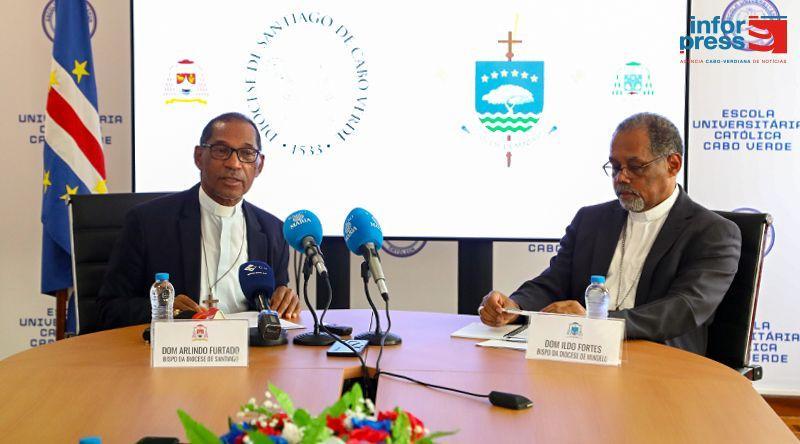Africa-Press – Cape verde. The Catholic Church is taking the first steps towards translating the Bible into Cape Verdean (Creole), revealed this Wednesday the bishops of Santiago and Mindelo, respectively, Dom Arlindo Furtado and Dom Ildo Fortes.
The highest officials of the Catholic Church in Cape Verde argue that when the message of Christ is “communicated in our own language, the impact is different”.
“The impact is different, because we are better able to absorb the complexity, intensity and importance of the message we receive,” the prelates stressed, adding that the message transmitted in one’s own language has “an intensity of alliance, communion and harmony”, as well as being “much more feasible and expected”.
The two religious leaders made this revelation at a press conference, in which they took stock of the 2nd National Meeting of Bishops of Cape Verde, which took place over two days in Praia.
For the translation of the Bible, they added, a working group will be created, made up of religious people, but also lay people who are experts in the mother tongue.
Asked about a possible visit by Pope Leo XIV to Cape Verde, the bishop of Santiago said he has a “strong hope” that the recently elected highest official of the Catholic Church will come to Cape Verde.
“I am convinced that the history of Cape Verde, the importance of Cape Verde in Africa and the agenda of Pope Francis, which foresaw this visit, all of this will encourage the new Pope to visit us when he deems it appropriate,” said Cardinal Dom Arlindo Furtado, for whom this visit will always be in dialogue with the Cape Verdean authorities and the Church.
Still on the subject of a trip by Leo XIV to the archipelago, the cardinal explained that this has not even begun to be discussed yet, but he hopes it will happen.
The two bishops believe that, at least in 2033, Leo XIV will be able to visit the archipelago, to carry out what his predecessor Francis had promised.
Cardinal Dom Arlindo recalled that the late Pope Francis had a visit to Cape Verde on his agenda.
“He [Pope Francis] informed me personally and then one of his advisors also approached me, in particular, saying that they were preparing the agenda for a visit to Cape Verde”, stressed Dom Arlindo.
During the meeting, the two bishops also analyzed the need for the language used in religious activities to be “accessible”, so that, according to them, everyone can understand the message.
Recent data from the National Statistics Institute (INE) indicate that 15% of the population is indifferent to religions.
Asked what the Catholic Church intends to do to reverse this situation, Dom Arlindo was peremptory: “I am convinced that these 15% come, in large part, from the April Revolution, which culminated in National Independence, with the influence of, let’s say, agnostic ideology”.
According to Dom Arlindo, it was after April 25 that the upper middle class moved away from the Church.
“Now, many are returning. But their children were not catechized,” he pointed out, adding that these generations were left with a “very partial view of the historical reality of what the Church was and what the Church is today and always.”
In his view, the recently created Catholic University School can be an instrument for reflection and for deepening existential questions that will lead some of these people to question themselves about the best path they should take in life.
Catholic schools, the prelate emphasized, “much sought after today even by our elites”, due to the excellence of the teaching and education they provide, will also be able to help people overcome obstacles.
Given the quality of education they receive in Catholic schools, people may begin to think that, after all, “it’s not as bad as they once heard.”
For More News And Analysis About Cape verde Follow Africa-Press






